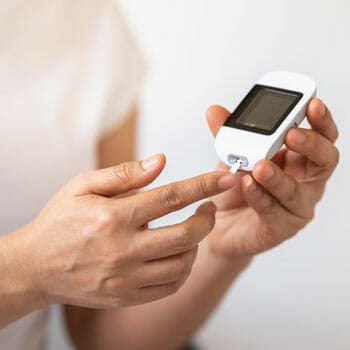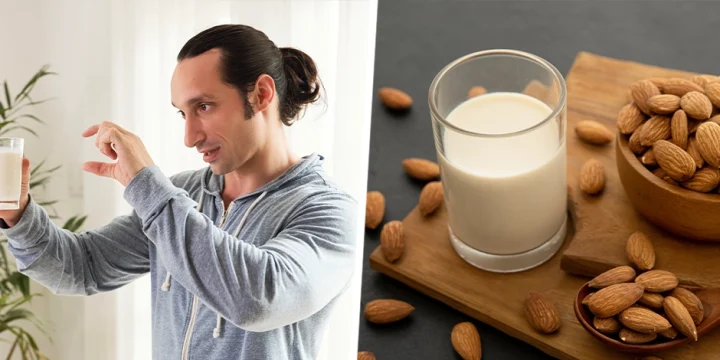While turmeric offers various health benefits, there's limited evidence directly linking it to an increase in testosterone levels in men.
Drawing from years of experience as a personal trainer, I’ve learned that supplementing with turmeric may contribute to factors optimizing testosterone. However, it's crucial to add it into proven strategies like regular strength training, a balanced diet, and sufficient sleep.
You can also check our complete list of natural testosterone boosters. We did extensive research and you will for sure find the perfect choice for yourself.
Quick Summary
- Turmeric can help increase testosterone levels in the body by blocking estrogen levels, known to interfere with testosterone levels.
- Turmeric supplementation can positively impact testosterone levels, offering additional benefits for enhancing cholesterol profiles and managing weight.
- Its anti-inflammatory properties have been shown to effectively alleviate symptoms of knee osteoarthritis in 94 percent of observed individuals.
- As a fitness trainer, adding turmeric as a supplement has the potential to optimize testosterone levels, particularly when combined with consistent training, a balanced diet, and sufficient sleep.
How Does Turmeric Impact Your Testosterone Level?

Turmeric can impact testosterone levels by potentially increasing free testosterone in the bloodstream through its antioxidant properties and other mechanisms, such as blocking excess estrogen, balancing cholesterol, and activating vitamin D receptors [1].
Additionally, scientists have noted other positive effects of turmeric on testosterone, including:
1. Blocking Estrogen
Estrogen is vital for sperm development, but excess estradiol can decrease testosterone levels. Research from ScienceDirect indicates that curcumin, found in turmeric, intervenes at the cellular level, blocking excess estrogen and helping maintain a natural balance of testosterone levels in the blood [2].
2. Balancing Cholesterol
Cholesterol is a crucial precursor for all steroid hormones, including testosterone, as per the National Institute of Health. Turmeric supplementation can help assist in balancing total cholesterol levels in the blood, potentially aiding weight loss and leading to elevated testosterone levels in men [3].
3. Activating Vitamin D Receptors
While a study from the National Institute of Health suggests that curcumin supplementation improved vitamin D levels in women, another study from the same institute indicates that vitamin D supplementation can potentially increase testosterone levels [4] [5].
Turmeric Benefits For Men

In a recent discussion with my dietitian, she emphasized the additional health benefits of turmeric, including:
1. Combating Oxidative Stress
Research from the National Institute of Health indicates that turmeric can help in the detoxification process by countering toxins produced during oxidative stress, especially in cells processing oxygen [6].
2. Improving Insulin Sensitivity

Turmeric enhances insulin sensitivity, potentially stabilizing blood glucose levels and influencing body fat and liver function. This makes turmeric supplements a possible solution for those dealing with low testosterone, often linked to diabetes [7].
3. Reducing Inflammation
Research from Harvard Medical School indicates that, aside from its antioxidant benefits, the curcumin in turmeric has anti-inflammatory properties. A study concluded that 94% of people with knee osteoarthritis symptoms experienced relief from arthritis symptoms with fewer side effects [8].
What’s The Active Ingredient In Turmeric?

The active ingredient in turmeric is curcumin, known for its anti-inflammatory properties and widely used for various health benefits.
“Why curcumin? It’s a naturally occurring substance, found in the spice turmeric, that has anti-inflammatory effects. Its use has been advocated for cardiovascular health, arthritis, and a host of other conditions.”
- Robert H. Shmerling, Harvard Health Publishing
Given that the botanical term for turmeric is Curcuma longa, it's easy to see why this spice is one of the most abundant sources of curcumin.
It's crucial to note that the spiciness of an herb doesn't influence testosterone levels. Just consuming chili powder, for instance, wouldn't yield the same reaction.
What’s The Best Way To Take In More Turmeric?

The best way to increase your turmeric intake and naturally boost testosterone levels, you either incorporate it into your food or take it as a supplement with added black pepper for better absorption.
Food
Turmeric in powder form is readily available at most Asian and Indian specialty food stores, and you won't need much for your spice cabinet. You can add it to your meals or mix it with milk or a smoothie—yes, milk and turmeric make a tasty drink.
Supplements
If you're not a fan of spicy food, you can still enhance testosterone production by taking curcumin as a supplement. Look for one with added black pepper, which may aid in faster nutrient absorption.
Raw Turmeric Root or Powder
To consume raw turmeric, try it as a powder or freshly grated. For better taste and absorption, combine it with a liquid like a flavored turmeric shot, tea, or smoothie. Turmeric powder can be added to dishes like curry, soups, and roasted meat.
Related:
FAQs
What Food Gives You More Testosterone?
Consuming foods rich in curcumin, zinc, and vitamin D may give you more testosterone in the blood. These foods include seafood, nuts, and seeds, offering a natural boost through your diet.
Which Tea Is Good For Testosterone?
Turmeric and white tea are good for testosterone. Clinical study results have directly linked curcumin to testosterone. Additionally, many teas contain polyphenols that block estrogen release, contributing to a higher T count.
References:
- https://www.ncbi.nlm.nih.gov/pmc/articles/PMC5598100/
- https://www.sciencedirect.com/science/article/abs/pii/S104366181931254X
- https://www.ncbi.nlm.nih.gov/pmc/articles/PMC2262169/
- https://www.ncbi.nlm.nih.gov/pmc/articles/PMC8784001/
- https://pubmed.ncbi.nlm.nih.gov/21154195/
- https://www.ncbi.nlm.nih.gov/pmc/articles/PMC5551541/
- https://www.ncbi.nlm.nih.gov/pmc/articles/PMC4338652/
- https://www.health.harvard.edu/blog/curcumin-for-arthritis-does-it-really-work-2019111218290
About The Author
You May Also Like






